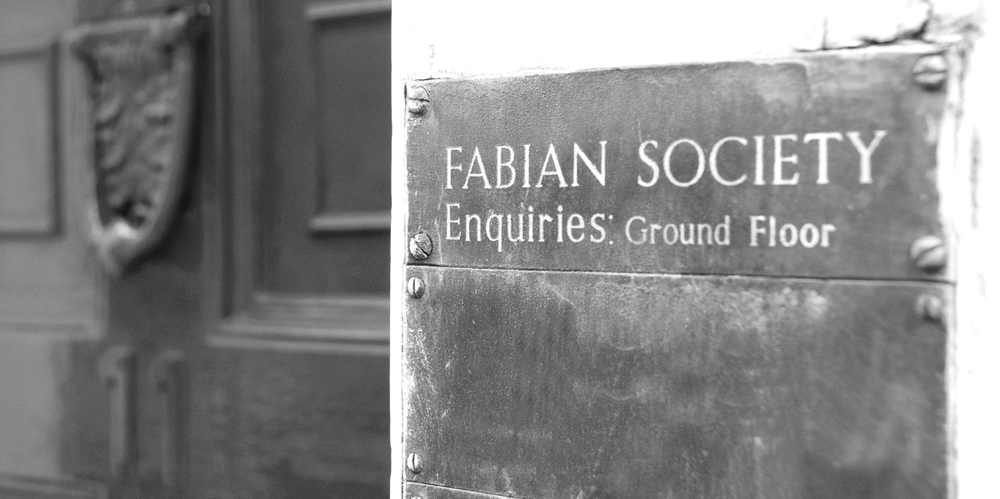If these walls could talk
Fabian members will probably know by now that the Fabian Society is moving from its Westminster offices at 11 Dartmouth Street to new premises just around the corner, in Petty France. You might, as I do, have mixed feelings about...
Fabian members will probably know by now that the Fabian Society is moving from its Westminster offices at 11 Dartmouth Street to new premises just around the corner, in Petty France. You might, as I do, have mixed feelings about the move, given the significance of the building in Fabian and Labour history. Logically it makes sense of course but there’s no denying that Dartmouth Street has a fascinating past, and one which I would like to see recorded and remembered in some way. So why and how did the Society first move into its current office?
The Fabians moved into 11 Dartmouth Street in 1928 following the notice to terminate their tenancy of 25 Tothill Street. George Bernard Shaw – a prominent (and rich) member – made this possible by lending them £2500 as a 5 per cent loan to be secured as a mortgage towards the purchase price of £3150. The Executive minutes of Thursday 10 May 1928 note that Messrs Sidney Webb, F.W. Galton, then the General Secretary, and H.J. Laski be appointed to act on behalf of the Society in the acquisition of Dartmouth Street. They duly, as instructed, viewed and approved the suitability of the premises.
The loan from George Bernard Shaw was received with thanks on 21 June 1928. I don’t know if Shaw was being tardy about actually producing the money as the minutes read, “Webb undertook to mention the question of mortgage to Shaw. If this failed, Galton was instructed to take the matter up with the solicitors and the bank…The question of making some grant to our tenants the Railway Club for the termination of their tenancy was deferred”.
The Executive minutes of Thursday 4 October 1928 note Item 5: ”Matters arising from removal. It was agreed that the common room, [which provided the advantages and conveniences of an inexpensive club for members including smoking accommodation, provision for chess and other games and tea and coffee served at low prices] should be re-opened on 15 October and to recommend that a house warming party be arranged for December 13”. It, sadly, was also agreed that the piano “no longer needed for our use, be sold”. (November’s minutes note that it was sold to the Army and Navy Co-op Society for £12). And the problem of the poor Railway Club tenants was resolved as well, in that it was agreed that an allowance of £20 off the quarter’s rent be made.
So how was the move presented to the members in the monthly issues of Fabian News? We learn from July 1928’s Fabian News that “members and friends will learn with regret that after 14 years in its present offices, the Society’s tenancy has been terminated, the premises having been sold for rebuilding”. The loan was mentioned but interestingly, Shaw remained an anonymous donor. Members were informed that the Fabian common room would be closed as the housekeeper would be away so no more refreshments would be served, but that the newspapers and journals would be supplied as usual.
The Society reopened in Dartmouth St on 15 October 1928 and disarmingly apologised in advance for delay in responding to correspondence “due to the disorganisation of the office consequent upon its removal”. Thankfully, the common room opened again and the ‘At Home’ was announced – to be held in the Livingstone Hall, right by Dartmouth Street. Tickets were two shillings and expected to sell out fast, and for that members were offered “coffee, some music and short speeches”. Also on offer was the opportunity to have a look round the new premises.
Well let’s hope that the housewarming party went with a swing, that the coffee went down well, that the speeches were indeed short and the members enjoyed their tours of Dartmouth Street. I can’t help feeling regretful about the loss of the piano. We can imagine – possibly – the Webbs, Shaw, Laski and all, gathered round the Fabian piano in the common room – having dismissed the housekeeper – maybe singing ‘The Fabian Magnificat’, a pastiche composed around that time which begins: ”My soul doth magnify the State and my spirit hath rejoiced in Webb my Saviour”; and ends: ”Glory be to the Fabians and to the Manager and to the Bureaucrat, As it was in Dartmouth Street, And in the Labour Exchange and in the House of Commons. Wages without End.”
As it was in Dartmouth Street! Well let’s hope that Petty France will, in the years ahead, come to represent all that Dartmouth St did, in the hearts and heads of all present and future Fabians.
